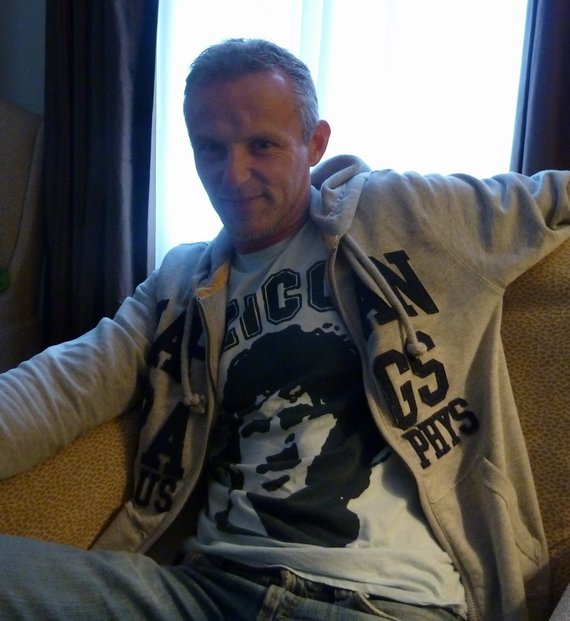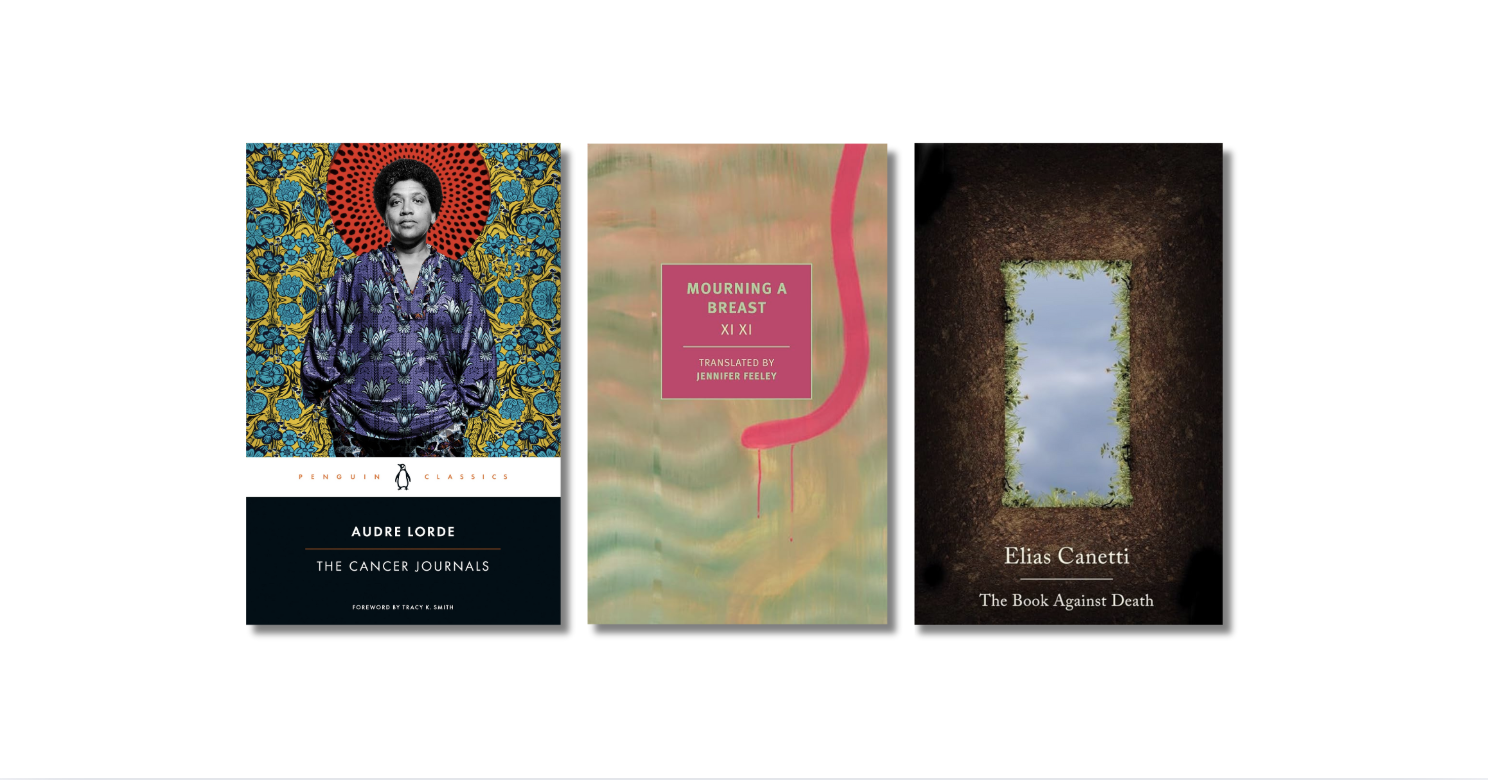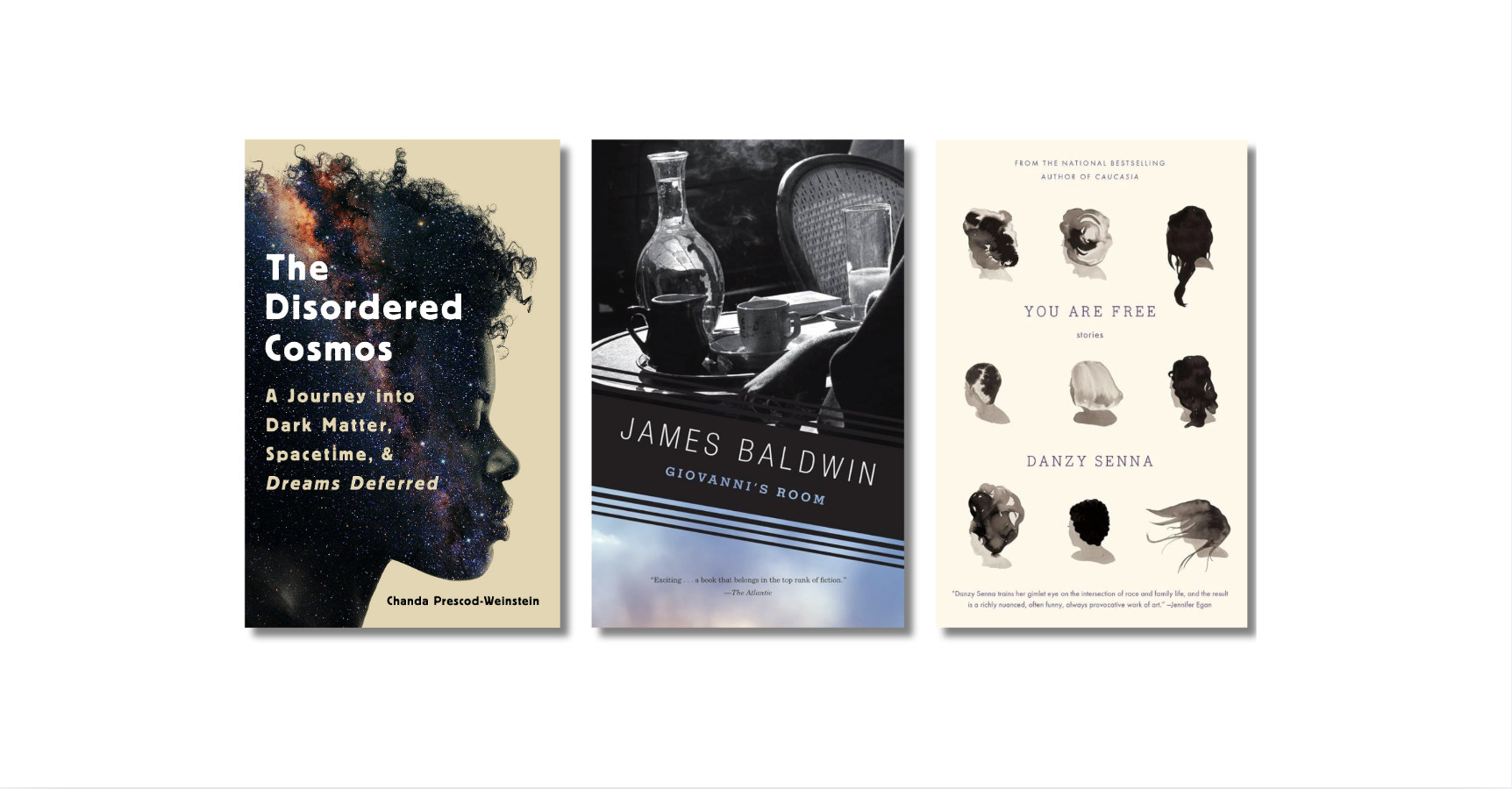Even a slight familiarity with pop culture provides the awareness that Scandinavian crime stories are ascendant — due in part to Swedish writer Stieg Larsson’s internationally bestselling trilogy. There are, of course, numerous other practitioners of the crime genre from ice-bound precincts — Åke Edwardson, Karin Fossum, Anne Holt, Camilla Läckberg, Henning Mankell, husband and wife team Maj Sjöwall and Per Wahlöö and Arnaldur Indriðason, and so on.
Norwegian Jo Nesbø, whose CV includes stints as a stock trader, cab driver, musician, and soccer player, has seen six novels featuring his driven and single minded Oslo homicide detective, Harry Hole, published in English translation. Harry likes jazz, ’80s rock, booze, and solving crimes. And, naturally, Hole resents and resists authority — a burdensome characteristic for a big city policeman. All of which produces entertaining and, dare I offer, suspenseful reading.
In our face-to-face chat we talked about American crime writers, Nesbø’s ineptitude as a taxi driver, who is making a movie from his book, Lord of the Flies, his reading habits and more:
Robert Birnbaum: How do you pronounce your name?
Jo Nesbø: Ah, well. Outside Norway I prefer Jo Nesbø (both laugh). It’s the simple version. The Norwegian version is Ug Nespa.
RB: Say it again.
JN: Ug Nespa.
RB: Is there a “g” at the end of your first name?
JN: No there’s not.
RB: Sound’s like it. There’s a hard sound at the end. And Harry Hole is pronounced how?
JN: Same thing — outside Norway I am happy with Harry Hole and so is he, but in Norway it’s Hahree Whoule.
RB: Since your book is translated, it must be first written in Norwegian, yes?
JN: Absolutely.
RB: When you think about American crime fiction, there are a number of icons that people around the world refer to — Chandler, Hammett, Cain, and Thomson. Is there someone like that in Norway?
JN: Yeah, you have [Henrik] Wergeland. [He] is recognized as the godfather of Norwegian crime literature. In Scandinavian crime you have to go to the ’70s — Maj Sjöwall andPer Wahlöö founded the modern Scandinavian crime novel based on social criticism.
RB: And more procedural.
JN: It was. So everyone in Scandinavia who writes a crime novel, whether they l know it or not, they are influenced by Maj Sjöwall and Per Wahlöö.
RB: You have a varied CV — how did you come to writing?
JN: Um.
RB: You were a stockbroker, a rock and roller, soccer player, taxi driver.
JN: I was a really bad taxi driver. I was famous for it.
RB: Bad sense of direction or poor driving?
 JN: Just bad driving. Lack of concentration. But I come from a book reading home. My mother was a librarian. My father was a book collector. And so he would always be reading. So I started reading as soon as I could tell the letters [of the alphabet]. The first novel that I made my father read to me was Lord of The Flies by William Golding. A Nobel Prize winner. I wish I could say I chose that book because I have good taste, but I liked the cover. It was a pig’s head on a stake. Actually, when I wrote my first novel at the age of 37, none of my friends were surprised that I had finally written a novel. They were more like, “What took you so long?” It took some time, but it came very naturally.
JN: Just bad driving. Lack of concentration. But I come from a book reading home. My mother was a librarian. My father was a book collector. And so he would always be reading. So I started reading as soon as I could tell the letters [of the alphabet]. The first novel that I made my father read to me was Lord of The Flies by William Golding. A Nobel Prize winner. I wish I could say I chose that book because I have good taste, but I liked the cover. It was a pig’s head on a stake. Actually, when I wrote my first novel at the age of 37, none of my friends were surprised that I had finally written a novel. They were more like, “What took you so long?” It took some time, but it came very naturally.
RB: I am a little confused. There are eight novels in the Harry Hole series and four have been published in the U.S. [there are actually six available, with a seventh on the way in fall 2012]?
JN: I’m a bit confused myself. Because the first two novels feature Harry Hole in Australia and then in Bangkok, Thailand. And when we started selling the rights abroad we decided we would not sell the rights to the first two novels because they were a bit far-fetched — a Norwegian detective in Australia and Thailand. So we started with the third novel, but then the U.K. and later on the U.S. decided they would publish them out of order. So it is a bit confusing. Not only are they out of order, but also they are in different print sequences in different countries.
 RB: And Headhunters?
RB: And Headhunters?
JN: That’s a stand-alone.
RB: And Harry Hole is not in it at all?
JN: No, he is not mentioned and he is not there.
RB: Headhunters has been made into a movie in Norway — will it play in the U.S?
JN: Yes, which is rare. I just came back from Cannes and we showed it to distributors and the American distributor was so happy with it that it will be shown in at least 15 cities.
RB: Is Working Title the distributor?
JN: No, they bought the rights for one of the Harry Hole stories.
RB: Which means they effectively bought them all.
JN: Yah, yah.
RB: Working Title is the Coen Brothers?
 JN: That’s right. That was their opening line when they phoned me. Because I had turned down offers for the Harry Hole series for a long time. Not that I don’t love movies, but they’re so strong compared to novels, so I wanted to keep that universe untouched. But they phoned me with a great opening line — “Hi, we are Working Title and we made Fargo.” (both laugh) And so I said, “OK, I’m listening.”
JN: That’s right. That was their opening line when they phoned me. Because I had turned down offers for the Harry Hole series for a long time. Not that I don’t love movies, but they’re so strong compared to novels, so I wanted to keep that universe untouched. But they phoned me with a great opening line — “Hi, we are Working Title and we made Fargo.” (both laugh) And so I said, “OK, I’m listening.”
RB: Why did they mention Fargo, of all their films?
JN: I think they had a hunch that I liked that movie. It was probably on my top 10 list of movies ever.
RB: That’s great. I always have liked them, but I gained a lot of respect for them in the way they re-made True Grit.
JN: I just saw the first part of True Grit on the plane — I hadn’t seen it. And the dialogue was great. And I was curious because I hadn’t seen the original and it was really whippy great dialogue. It reminded me of Deadwood. Different, but still with great attention to dialogue.

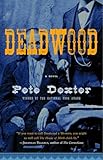 RB: I recommend the novel Deadwood by Pete Dexter.
RB: I recommend the novel Deadwood by Pete Dexter.
JN: I didn’t know there was a novel. Is it written in the same, almost Shakespearean way?
RB: Dexter is a great American writer, most well known for Paris Trout.
JN: I’m so ignorant.
RB: Is this your first visit here?
JN: No, I was here two years ago [for a book tour] and I was here before that. My father grew up in New York, in Brooklyn, with my grandparents. So I have some ties and bonds with the U.S.
RB: Besides gruesome deaths, what would define and distinguish Scandinavian crime literature? As opposed to American?
JN: Hopefully, Scandinavian crime has — the quality is good. You do have bad Scandinavian crime lit — but I think what separates it from not only American, but the rest of Europe also, is there is a tradition stemming from the ’70s that it was OK to write crime literature. It was prestigious. Sjöwall and Wahlöö sort of moved the crime novel from the kiosks into the bookstores, meaning that young talented writers would use the crime novel as vehicles for their storytelling talents. And so you have had good crime novelists, good writers, who would, from time to time, write so-called serious literature and almost all the well-known, established serious writers in Scandinavia have at one time written a crime novel. It’s sort of a thing that you do. You must have a go at genre.
RB: Here it seems acceptance of genre fiction as legitimate has come later. Elmore Leonard is championed, by among others Martin Amis, Michael Connelly, and George Pelecanos.
JN: James Lee Burke.
RB: I have read three of your books — and you have avoided what I think is the reason I don’t read series. Harry Hole is not predictable and clichéd. You know some of his habits, but the plots aren’t cookie cutter. What’s on your mind when you write the next Hole story? When are you done with him — how old does he get to be?
JN: That’s a secret.
RB: You know?
JN: I know — I have a storyline for him. He is not going to have eternal life. And he is not going to rise from the dead. So after the second novel, I sat down and wrote his story — I am not 100 percent sure how many books there will be, but if we are not near the end, we are nearer the end.
RB: Philip Kerr, who has written seven Bernie Gunther novels, says that the problem with writing a series is that the author usually writes one or two too many. They don’t know when to stop. Will you know when to stop?
JN: I don’t know. (laughs) I have no idea. Hopefully somebody will tell me. As long as the books sell, probably they won’t.
RB: Sales and quality don’t necessarily correspond.
JN: Actually, I think that — I am reading Jim Thompson on the plane. He had to write to pay the rent. I am so lucky I don’t have to write. I don’t have to sell books. So I can focus on what I want to do — what’s interesting. Do I know when to stop? Yes. It will not be decided by sales numbers. From the start I wrote for myself and two friends that I wanted to impress — two friends that had more or less the same taste in culture. And it’s still the same. Those are the two guys I am writing for — they don’t know this. If they say, “I read the last book and it was OK, then I am over the moon.”
RB: OK is good?
JN: OK is great.
RB: Do you have first readers?
JN: Yah, at the publishing house.
RB: But not friends?
JN: No, nothing like that. I have four or five people at the publisher. They coordinate their opinions and we sit down and have a meeting.
RB: Chandler was in the same situation as Thompson — so it goes. So, there is a limit to the Harry Hole. Are you already thinking about other fiction that you want to write?
JN: I am.
RB: How far ahead are you in your aspirations and goals?
JN: Other series or novels? I don’t like to think that long term. The problem is that I have more ideas than I have time. So I have — I am 51 now. I probably won’t be able to read all the books I want to read. And I won’t have the time to write all the books I want to write. So I try to give them the right priority, meaning that— — I have a children’s book series that I am working on now. There will be one more book in that series. And then a stand-alone children’s book. And then I will finish the Harry Hole series. I have some ideas for maybe a new series. I haven’t quite decided yet because I want to write this stand-alone thriller. When you write, it’s important to do it while you have the enthusiasm for the idea. Maybe the most important period of your writing is when you are convinced that your idea is the best idea any writer ever has had. So you have to use that energy, because the time will come when you wake up in the morning and you will doubt your idea. And then it’s good that you have already more than half–
RB: That doesn’t happen when you start something?
JN: Not when I start. And it doesn’t really happen that often. I wake up in the morning unsure. It did happen two years ago. I had been working on a novel for a long time and I started doubting. I went to my publishers and they were quite happy with it. But they had some suggestions and I immediately knew that they read it the way I read it myself. And what I did was delete the whole novel. Two years’ work out the window. Like I said, I am in the fortunate situation that I don’t have to publish books to pay the rent.
RB: It sounds like you don’t encounter writer’s block.
JN: No, I never experienced writer’s block, no.
RB: Do you have to write every day?
JN: I try to write every day, and I can write almost anywhere. I have been writing on the plane coming here. I thought our meeting was at four o’clock, so I was planning to write for an hour. When we are done here, I am going to write for two hours before my next meeting.
RB: Sounds like you love it.
JN: I love it. I started writing so late in life. I was 37 — I had worked, as you said, as a taxi driver, a stockbroker. A fishing trawler. I had many kinds of jobs. And I know this is the greatest job that you can have. To actually get up in the morning and people are paying you to do what you really want to do. To come up with these stories. It’s unbelievable having that as a job.
RB: Do you go for periods without writing?
JN: I don’t. Not really. Like I said I have more ideas than I have time. When I am going on vacation with my daughter for a week, she says, “Daddy, don’t bring the laptop, ok?.” I say, “No, no, no, I won’t.” Like an alcoholic, I will have it hidden somewhere. No, I have one week a year that is sort of sacred, that I don’t write.
RB: Can you imagine not writing?
JN: I can. I had a long life not writing, so I can imagine. But it would a poor life, that’s for sure.
RB: What is life like for a successful writer in Norway — do you live in Oslo? Is there a literary circle?
JN: I live in Oslo and there is a literary circle. I guess I am not part of it. I never was. I have my friends before I started writing and I stick with them. We hang out and do things.
RB: No publishing parties and movie openings?
JN: Not really. I probably did that more when I was a musician. And you get tired of it — talking about books, talking about writing. I do that enough when I am traveling. It’s good to go back home and go rock climbing or just talk about Bob Dylan — anybody but me. When I first started talking about myself at interviews like this, I though this must be the best job ever. To have people absolutely listening to you, talking about yourself for hours and hours. So I was a bit surprised when after a couple of years I felt I was getting tired of myself. Listening to my own voice, retelling the story of my life.
RB: Answering the same questions–
JN: You know this interview is a bit better than most–
RB: Well, thank you. Is there a big boom in writing programs, MFA programs in Scandinavia as in the U.S?
JN: Ah, yah. Something happened in the ’90s that suddenly writers became pop stars. They started being interviewed on talk shows and they started having their own shows called Book Box — there was an old building in Oslo where they had an indoor pool. They started interviewing writers there. They were like rock concerts. Actually, they had rock concerts in the same arena. It would be sold out — just for a writer being interviewed for 45 minutes. Ever since that, all the young talented people, they want to become famous writers because they would be treated like pop stars.
RB: What is the book business like in your part of the world? Is it prospering?
JN: It is. Norway — I am not sure about Sweden and Denmark, but Norway is one of the best countries in the world to be a writer. Both economically and artistically. I just went to France and I asked a bookseller there, “How many writers can write full time?” He said, “Probably, 50 or 60.” In Norway there are probably 200. Which has a smaller population — smaller than Massachusetts — 4 or 5 million.
RB: Which Americans do you try to read? How do they filter into Norway?
JN: I guess European literature has traditionally been more important in Norway than American. But myself, maybe because my father grew up here, I was influenced by American literature from a young age. Mark Twain, who I still regard as one of the great American writers. And Ernest Hemingway. Later on I read the Beatniks — Jack Kerouac. I was a great fan of Charles Bukowski.
RB: And contemporary novelists?
JN: Michael Connelly. James Lee Burke. There are so many greats. I didn’t read that much crime fiction before I started writing it myself. I can remember reading Lawrence Block. Dennis Lehane, of course. His Mystic River. I went to Asia and I bought 10 crime novels that were supposed to be good. Out of the 10, I found one good book — which was Mystic River.
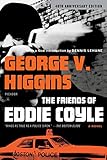
 RB: There is another Bostonian, Chuck Hogan [The Town] who is excellent. And there is [the late great] George Higgins who wrote The Friends of Eddie Coyle. Do you know it?
RB: There is another Bostonian, Chuck Hogan [The Town] who is excellent. And there is [the late great] George Higgins who wrote The Friends of Eddie Coyle. Do you know it?
JN: No.
RB: It’s also a great movie with Robert Mitchum. You are here for an extensive charm initiative?
JN: I will be here for nine days, trying to charm as many [people] as I can. Toronto, NYC, and the West Coast.
RB: By the way, how is it that your father grew up here?
JN: My grandmother left Norway for the U.S. when she was 16 and then she went back and met my grandfather. They made my daddy. And they went back to Brooklyn. To a part of Brooklyn where you had many Scandinavians in the ’20s and ’30s.
RB: Do you watch crime movies?
JN: I do. When I started writing I was probably more influenced by crime movies based on novels than the original novel. In some cases the films are better than the novels. The Godfather is probably a better movie–
RB: Someone is actually writing a prequel. What a god-awful idea.
JN: Yah.
RB: Did the HBO series The Wire make it to Norway?
JN: Yes. I have seen it and it’s great. The most interesting thing happening in storytelling right now is probably in American TV series. Breaking Bad—
RB: Justified based on an Elmore Leonard character — pretty funny. Are there original serials like that in Norway?
JN: We do, but with a small population and limited resources — there is a Danish series that made its way at least to the U.K. It’s called The Crime.
RB: It’s called The Killing here. A female cop tries to solve the killing of a young girl–
JN: That’s it. Are you seeing the original series?
RB: No, it must be made for the U.S. It’s in English and set in Seattle using American actors.
JN: Yah, the original is shot in Copenhagen. It’s great, if you can get it. It has subtitles.
RB: When I saw The Wire, I never saw it in episodes — I got the DVD and watched four or five hours at a time. It seems counterintuitive to watch these long stories a piece at a time.
JN: I agree. Watching the DVDs is like books, you decide when to consume the story. But don’t forget Charles Dickens would serialize his stories.
RB: Who knew the difference then? What is it, a new phenomenon?
JN: I think he was the first one who did it — if not, it was unusual to do that. I heard he would receive letters from his readers advising him how the story should go. And he would actually listen to them.

 RB: Dickens was fascinating character. I’ve read a few novels where he actually appears as a character — Richard Flanagan’s Wanting and Joseph O Connor’s Star of the Sea. What kind of music do you like — jazz appears a lot in the Hole books?
RB: Dickens was fascinating character. I’ve read a few novels where he actually appears as a character — Richard Flanagan’s Wanting and Joseph O Connor’s Star of the Sea. What kind of music do you like — jazz appears a lot in the Hole books?
JN: Jazz and American rock from the ’80s. I still play about 50 to 60 gigs a year. I play guitar and I sing. So most of the gigs are with my bass player. We also go touring with my old band. We are going touring this summer — just for a few festivals. Just for fun. We keep the tour short enough so we don’t kill each other (laughs). So we are having fun.
RB: Do you tour outside Norway?
JN: No, the lyrics are in Norwegian and I don’t think the music makes sense outside Norway.
RB: Who comes to Norway to play? Anyone big?
JN: Most of them — either to Oslo or Stockholm or to Copenhagen — which is not so far from where I live in Oslo.
RB: Do you travel in Scandinavia?
JN: The land is more or less the same — just different dialects.
RB: Danish is understandable?
JN: No you have to read Danish. They speak funny. Actually, and I love Danes, but Danish is difficult. Children all over the world learn their mother tongue at the same age except for one country — Denmark. It takes a little longer.
RB: Apparently Dutch is unpronounceable by anyone except the Dutch. That’s how the Dutch Resistance tripped up spies in World War II. So will you participate in the making of the Harry Hole movie?
JN: The deal is done. I am an executive producer. I have a veto when it comes to the director and screenwriter. And that was what was important to me. I wasn’t too eager to sell the rights for the books as long as I was writing the series. So that was a condition — that I would have veto. The first time we met they said, “We can’t do it like that. We can’t go to Martin Scorsese and ask him to write a screenplay for this unknown Norwegian writer and if he likes it then maybe this unknown Norwegian writer will say yes. And have you direct the movie.” I said, “I completely understand but that is my condition. I am happy not to have the series filmed, yet.”
RB: Is it difficult that once the film is made there will be a tangible character and so when you write–
JN: That was one of the reasons I wasn’t eager to have it filmed, you know. I‘d rather there be a 1,000 Harry Holes in the heads of my readers than one character defining him.
RB: Having said that, who do you think may be a good Harry Hole?
JN: I have no idea.
RB: Norwegian or American?
JN: I have been thinking hard — Nick Nolte is probably too old. But I have no idea.
RB: Do you like Harry Hole?
JN: I do. He is a bit annoying at times. But most of the time I like him.
RB: Because he comes through — for truth, justice, and the Norwegian way?
JN: I mean he is irritating. He always has to do things the difficult way. He can’t ever — he has this problem with authority. And in my opinion he should try to avoid authority more, instead of always picking a fight. He’s a bit annoying in that sense. He is not the kind of guy I would like to hang out with — he is a bit too intense.
RB: He doesn’t really have any friends. One guy — his tech guy; he is sort of a friend. Even his colleagues who seem to respect him don’t gravitate to him. He is a tough cookie. His girlfriend obviously has problems with him.
JN: I think women want to save him more than that he is pleasant to be around. But he has one childhood friend — the hard drinking taxi driver. Apart from that, a psychologist and women.
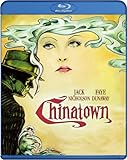
 RB: Often in crime stories, the crimes are not that important. Certainly in Raymond Chandler, in The Big Sleep who could figure that one out. Or in Chinatown where you are told not to try to understand “because it’s Chinatown.” In the Harry Hole stories, you do plot out a crime and have surprising solutions and endings. It’s something you care about?
RB: Often in crime stories, the crimes are not that important. Certainly in Raymond Chandler, in The Big Sleep who could figure that one out. Or in Chinatown where you are told not to try to understand “because it’s Chinatown.” In the Harry Hole stories, you do plot out a crime and have surprising solutions and endings. It’s something you care about?
JN: Yes. I like the dialogue you have with the reader — I am going to give you a chance to sort out the riddle. And I will give you enough information to solve it. I am not going to give you all the vital information from the last 30 pages. But before that, at least you have a chance. That was what Dennis Lehane did in Mystic River — there was a bit of information in the middle of the book and an experienced reader or writer — you could probably tell, okay, here is the killer.
RB: I liked his standalone novel about the 1919 Boston Police strike, Any Given Day.
JN: Yah, yah.
RB: It mentioned the Great Molasses Flood where a big vat of molasses escaped killing 19 or 20 people and wreaking untold havoc. Robert Parker also wrote a number of series and I thought his best work was a standalone, All Our Yesterdays. Did you read Parker?
JN: No. One American writer I read recently was Richard Matheson’s I am Legend. A great novel — short and to the point. It reminded me of Cormac McCarthy’s The Road.
RB: When The Road came out, I wasn’t in the mood to read it. But I did read a post-apocalyptic novel by Jim Crace called Pesthouse. Twenty years hence, most of America has been destroyed and survivors are searching for safe areas and viable communities. And of course they encounter obstacles. It came out around the same time as McCarthy’s book and was overshadowed by it. Do you know of Jim Crace?
JN: No. There are so many writers. We been sitting here almost an hour now and you are mentioning well-known writers and I don’t know about them. I probably should be embarrassed, but I am not. There are so many books and we don’t have time to read them all.
RB: It is frustrating. If you read 200 books a year, you still don’t scratch the surface.
JN: How many do you read a year?
RB: I may complete 150.
JN: 150!
RB: I start a lot more. I used to feel bad about not finishing a book. I’m better at that.
JN: I ‘m a slow reader. I read more like 30 a year. It’s a crazy thing — there so many talented writers that you are not going to hear about. That’s why I feel so privileged and lucky to be able to come here after years of writing and have a name in Europe and hopefully some day in the United States. It’s not enough to be good.
RB: Is your backlist available here now? Harper has four, Knopf as two. The others?
JN: The first novels will translated to English next year. Harper will probably keep the backlist.
RB: Which one will be made into a movie?
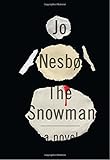
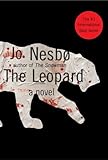 JN: The Snowman.
JN: The Snowman.
RB: The new one.
JN: Actually that’s the previous one — the next one is called The Leopard.
RB: All right, thank you
JN: Thank you.
Image courtesy of Robert Birnbaum.
